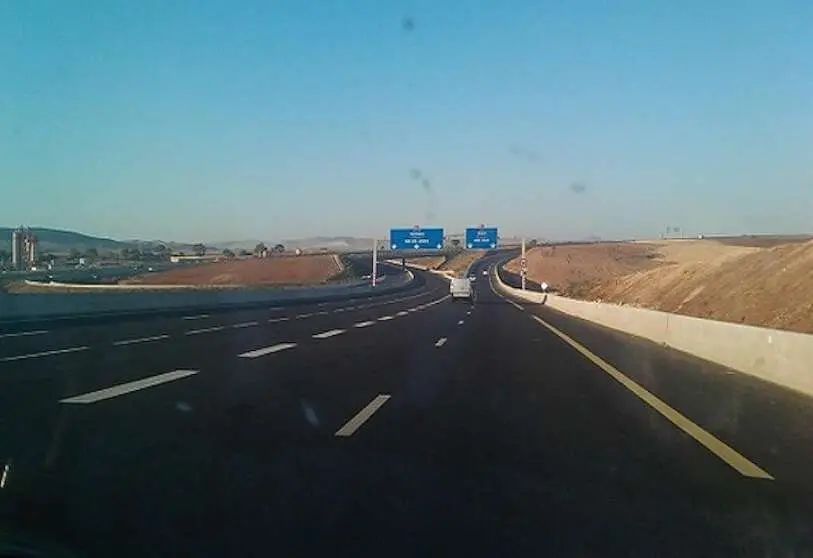We need to look to the south

The Middle East is a particularly troubled region, as we all unfortunately know. This is not the time to analyse its problems or its wars, which foreign involvement exacerbates rather than appeases. Today, I would like to focus on two developments which, if not completely silent, are developing in a more worrying than spectacular way. And by the time we realise this, it will be too late to react. I am referring to the entry of China and the return of the Islamic State to the Middle Eastern scene.
At this time, with the United States in open withdrawal and with elections in sight, and with Europe more absorbed than ever in its problems, the power and influence of three countries is growing in the Middle East, and none of them is Arab: Russia, Turkey and Iran. All three are present in Syria; Iran influences Yemen; and Russia and Turkey are confronting Libya indirectly... with the risk that they may end up doing so directly. But while we understandably focus on them, because they deserve our attention and because the urgent always ends up moving from the forefront to the really important, another country is entering the region in force: China buys 40% of the oil it consumes in the Middle East (and takes advantage of these massive purchases to lower prices), and also invests a lot there under the cover of the vast means of financing offered by the Silk Road programmes.
China is thus appearing to the citizens of these countries as the builder of the ports of Ain Sokha in Djibouti, Port Said in Egypt, Khalifa in the UAE, Duqm in Oman and Jizan in Saudi Arabia, and other equally spectacular infrastructures such as the Lusail Stadium in Qatar where the final of the World Cup will be held in 2022, the Yanbu refinery or the high-speed train from Jeddah to Mecca and Medina, both also in Saudi Arabia, or the very port of Haifa in Israel, which has cost Tel Aviv a bitter dispute with Washington, very unhappy with this collaboration of its favourite ally with its systemic rival. Beijing wants to be at the centre of the region's commercial networks and has therefore concluded strategic agreements with fifteen of its countries. Its trade relations with the 22 Arab countries reached almost $250 billion in 2018, to which must be added another $75 billion with non-Arab countries (Iran, Turkey and Israel) and it is negotiating a macro association agreement with the Islamic Republic of Iran in which it will invest $400 billion in infrastructure of all kinds in exchange for guaranteeing itself oil over the next 25 years. Beijing is thus increasing its influence and showing a willingness to stay in the region.
And as the river is turned over and the fishermen earn, there are also disturbing signs of the rebirth of the Islamic State from its ashes. With the military defeat and death of their Caliph Abubakr al-Baghdad, their surviving and uncaptured fighters have found refuge in the Iraqi desert sands, in the fear/sympathy of the Sunni minority marginalized by a sectarian-based majority, and in a network of caves in Anbar, Diyala, Kirkuk and the same Baghdad, from where they are operating again with guerrilla tactics.
In the first quarter of this year, the number of attacks due to the Daesh has doubled compared to the same period in 2019, almost six hundred, and experts estimate that their situation today is comparable to that of 2012 at the beginning of their sinister adventure of a lifetime. Whether he will now be resurrected with strength will depend on whether he is able to organise a powerful rearguard base in Syria again, and the current scenario there may favour his designs as the Americans withdraw, The Syrians and Kurds look at each other with distrust, the Turks and Kurds come to blows, and the enclave of Idlib, in the hands of Islamist factions of various stripes, absorbs the attention of the regime in Damascus and its Russian allies.
It is of no interest to us Europeans that it should be the Russians, the Iranians and the Turks who cut the cod in our immediate vicinity, which is an area of priority interest to us. Nor are we interested in a China with much influence on the region, even if it does so differently. Let alone the rebirth of that evil monster that was the Islamic State. No one in their right mind exposes their underbelly and even less so if they live in an unsafe neighborhood like the one we have.
We have effective instruments in foreign and defence policy, trade policy, cooperation policy and neighbourhood policy to influence what happens in an area that is a priority for Europe because it spreads instability and permanently threatens us with instability, flows of refugees and fanatical terrorists. We therefore need not just to see it, but to look at it with the interest it deserves and also with political will. I know that it is not easy in the middle of Brexit, with Americans withdrawing soldiers from Germany, with a Russia that once again threatens our eastern flank (Ukraine, Crimea), and with people still dying by the handful from the virus, while we discuss how to open borders in a concerted manner and how to allow tourist flows without the health situation getting out of control. There is, though, no alternative to playing all these instruments at once if we want - and have to want - to be a A major player in a world that is moving us slowly but surely towards its periphery, while the economic heart of the planet is located in the Indo-Pacific basin. That is why Pedro Sánchez's presence at the Nouakchott Summit on security in the Sahel is not enough, but it is good news. We must look further to the south!

